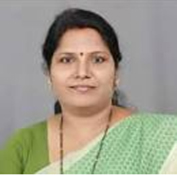NATIONAL SERVICE SCHEME (NSS)
 Dr. Suheli Mehta
Dr. Suheli Mehta Assoc. Professor, Dept. of Home Science, Magadh Mahila College, Patna University.
& Programme Co-Ordinator,
National Service Scheme (NSS),Patna University.Patna-800005,
Bihar, India.
The National Service Scheme will be in the forefront, when we consider the popular youth moments in the post independent India. However, it was in the year 1958, Pandit Jawaharlal Nehru took initiative and advised the academicians to suggest the programme to involve student Youth in Social Service activities. Since then various committees were appointed, first a Committee was appointed under the chairmanship of Dr.C.D.Deshumkh to prepare a scheme for compulsory national service by students prior to their admission for degree courses. At the second stage Prof.K.G.Saiyidain had undertaken a study of National Service by student youth in several countries and he had recommended that the national service may be introduced on a Voluntary basis.
The Education Commission was appointed under the Chairmanship of Dr. B.S. Kothari, (1964) after a deep study, he recommended that students at all stages of education should be associated with some form of Social Service. This was taken into account by the State Education Ministers during their conference in April, 1967, and they recommended that at the University students could be permitted to Join the (NCC) the National Cadet Corps, which was already in existence on a Voluntary basis an alternative to NCC they could be adored in the form of a new programme that is National Service Scheme (NSS).
The Vice-chancellors conference was held in September 1967 and welcomed those recommendations and suggested a Special Committee of Vice-Chancellors should be set up to examine this proposal in details the details were examined and suggested to include into 4th five year plan under the Ministry of Education. The planning commission sanctioned of outlet of Rs. 5 Crore for introduction of NSS in selected Colleges and Universities. In the pursuance of these recommendations the NSS programme was started on 24th September, 1969, during the Mahatma Gandhiji Centenary years. Since Gandhiji had inspired the Youth to participate in the National Movement such as Non Cooperation, Civil disobedience and Quit India Movements for the Independence of India and for the Social upliftment of the downtrodden masses.
Then the Union Education Minister Dr. V.R.V.Rao, launched the NSS Programme in 37 Universities covering all the states initially 40,000 student volunteers were enrolled in this NSS Scheme. This scheme has tremendous effect upon the youth one ray of hope could be the proper utilization of youth power through NSS programmes in universities and colleges at present the scheme is extended to all the State and Universities in the country, Students, teachers, parents, guardians, persons in authority of government, Universities and Colleges and the people in general now realize the need and significance of NSS.
The National Service Scheme was started to establish a meaningful linkage between the Campus and the Community. Mahatma Gandhi, the Father of the Nation, believed in ''Manava Seva ya Madhava Seva'' Service to man is service to God, he had recognised that the country could not progress in a desired direction until the student youth, who are committed, sincere and dedicated to the nation were motivated to work for the upliftment of the villages/slums/ community. For Gandhiji the villages, where majority of the population lived, represent the country, i.e. India. Therefore, for the national reconstruction and national resurgence it was deemed fit that the student youth, teachers and intellectuals should be properly sensitized and utilized for strengthening the Indian Society, as a hole with particular emphasis on rural community, who are living in poverty, illiteracy, with social backwardness. Therefore, student youth, teachers and intellectuals are considered the three basic components of the National Service Scheme.
The cordial principal of the programme is that it is organized by the students themselves and both students and teachers through their combined participation in social service, get a development. Besides, the students particularly obtain work-experience which might help them to find avenues of Self-employment or employment in any organization at the end of their university career. The response of students to the scheme has been quite encouraging starting with an enrolment of 40,000 students in 1969, the coverage of NSS students increased.